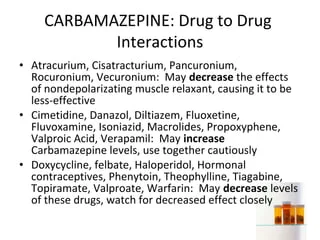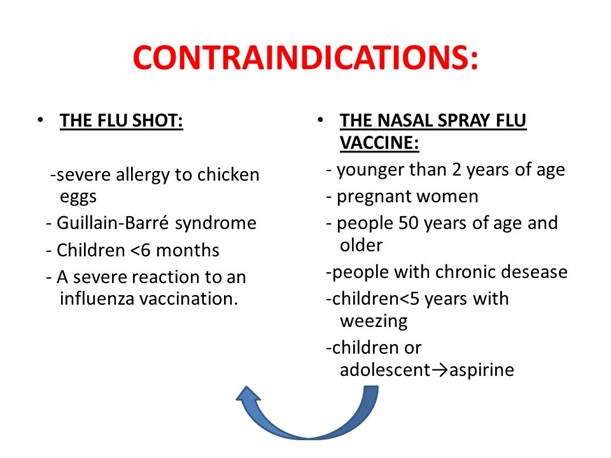A nurse is reviewing the list of current medications for a client who is to start a new prescription for carbamazepine. The nurse should identify which of the following medications interacts with carbamazepine.
Estrogen-progestin combination
Nicotine transdermal system
Diphenhydramine
Beclomethasone
The Correct Answer is A
A. Estrogen-progestin combination:
Correct Answer: This medication interacts with carbamazepine.
Explanation: Carbamazepine is known to induce certain liver enzymes, including cytochrome P450 enzymes. These enzymes play a role in the metabolism of various medications, including estrogen-containing oral contraceptives (estrogen-progestin combinations). Carbamazepine can increase the metabolism of estrogen-progestin combinations, potentially reducing their effectiveness and increasing the risk of contraceptive failure. Therefore, this interaction can lead to decreased contraceptive efficacy and the potential for unintended pregnancy.
B. Nicotine transdermal system:
Incorrect Explanation: This medication does not interact with carbamazepine.
Explanation: Nicotine replacement therapies, such as nicotine transdermal systems, are not known to have significant interactions with carbamazepine. These therapies are primarily used to aid in smoking cessation and do not share metabolic pathways with carbamazepine.
C. Diphenhydramine:
Incorrect Explanation: This medication does not interact with carbamazepine.
Explanation: Diphenhydramine is an antihistamine used for allergies and as a sleep aid. It does not have a well-established interaction with carbamazepine. However, it's important to note that carbamazepine can have central nervous system (CNS) effects, so caution should be exercised when combining it with other medications that also have CNS effects.
D. Beclomethasone:
Incorrect Explanation: This medication does not interact with carbamazepine.
Explanation: Beclomethasone is a corticosteroid used to manage inflammation associated with conditions like asthma and allergic rhinitis. It is not known to interact with carbamazepine. These two medications have different mechanisms of action and do not share significant metabolic pathways.

Nursing Test Bank
Naxlex Comprehensive Predictor Exams
Related Questions
Correct Answer is ["A","C","D"]
Explanation
A. "Rinse your child's mouth following administration." - This is important advice to prevent the development of oral thrush (a fungal infection) and to reduce the risk of irritation in the mouth and throat caused by the medication. After using a fluticasone inhaler, rinsing the mouth with water can help prevent these side effects.
C. "Shake the device prior to administration." - Shaking the inhaler before use ensures proper mixing of the medication and enhances its effectiveness.
D. "A spacer will make it easier to use the device." - A spacer is a device that attaches to the inhaler and helps the medication get into the lungs more effectively, especially for children who might have difficulty coordinating the timing of inhalation with activating the inhaler.
The other options:
B. "Have your child take one inhalation as needed for shortness of breath." - This instruction might not be accurate, as fluticasone is usually used as a maintenance medication to control chronic conditions like asthma. It's not typically used as a rescue inhaler for immediate shortness of breath.
E. "Soak the inhaler in water after use." - Soaking the inhaler in water after use is not a standard practice and is not necessary for proper administration or maintenance.
Correct Answer is D
Explanation
A. Peanuts:
While peanut allergies can be severe and life-threatening, they are not a contraindication to receiving the influenza vaccine. Influenza vaccines are not made with peanut-derived ingredients and do not pose a risk to individuals with peanut allergies.
B. Milk:
Milk allergies are not a contraindication to receiving the influenza vaccine. Influenza vaccines are typically free of milk-derived ingredients and do not contain significant amounts of milk proteins that would trigger an allergic reaction in individuals with milk allergies.
C. Shellfish:
Shellfish allergies are not a contraindication to receiving the influenza vaccine. Influenza vaccines are not derived from shellfish and do not contain shellfish proteins that could cause an allergic reaction in individuals with shellfish allergies.
D. Eggs:
This is the correct choice. In the past, some influenza vaccines were prepared using egg-based methods, which could pose a risk to individuals with severe egg allergies. However, most modern influenza vaccines, including those approved for administration in the United States, have extremely low egg protein content. The majority of individuals with egg allergies can safely receive the influenza vaccine, but those with a history of severe egg allergy may still need to consult with their healthcare provider before vaccination.

Whether you are a student looking to ace your exams or a practicing nurse seeking to enhance your expertise , our nursing education contents will empower you with the confidence and competence to make a difference in the lives of patients and become a respected leader in the healthcare field.
Visit Naxlex, invest in your future and unlock endless possibilities with our unparalleled nursing education contents today
Report Wrong Answer on the Current Question
Do you disagree with the answer? If yes, what is your expected answer? Explain.
Kindly be descriptive with the issue you are facing.
